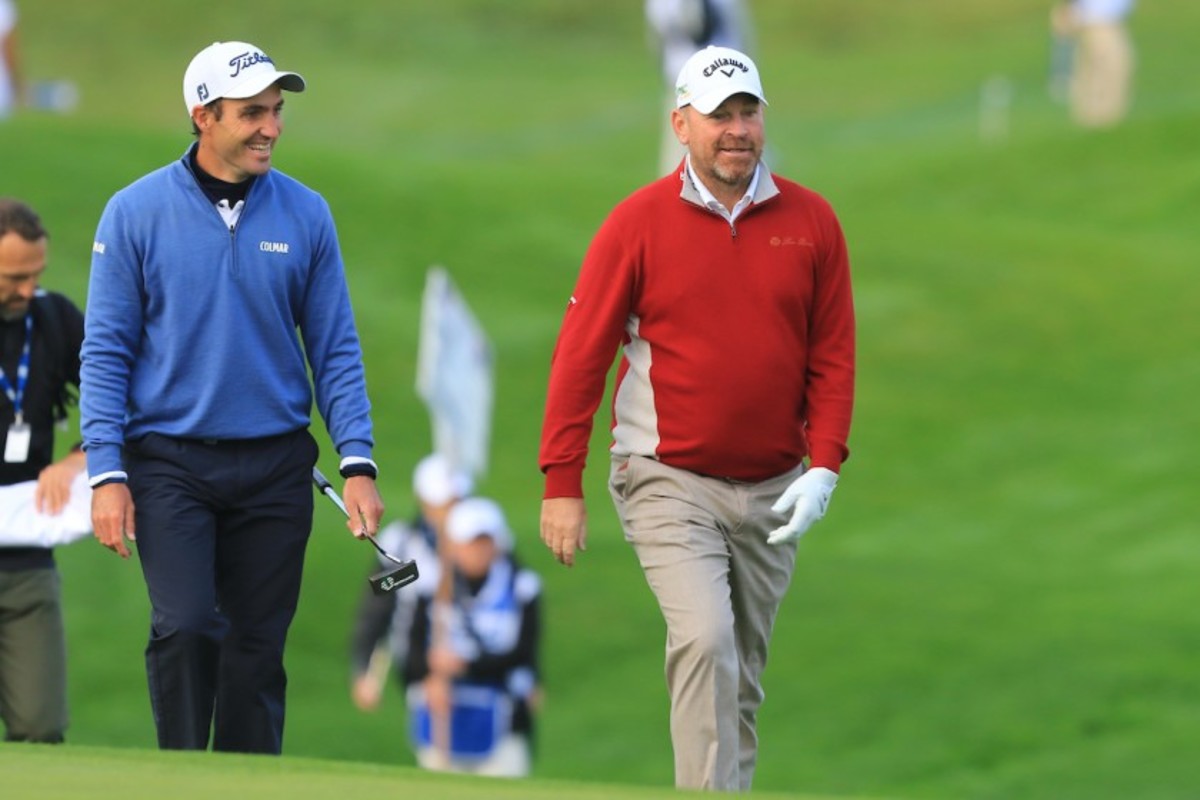European Tour to PGA Tour: Try to keep up, guys - literally

Golf has entered the last-chance saloon on the thorny issue of slow play. If the professional tours don’t do something about the problem this year, then we’d might as well all give up and go fishing rather than watch the game we love die a slow and painful death.
The European Tour is setting the agenda among the professional ranks. The PGA Tour has to follow suit when it institutes a new pace-of-play policy in April, after the Masters. If both tours get tough, it will send a message to other professional tours and amateurs that golfers impersonating snails is just not acceptable.

The Euro Tour’s new pace-of-play policy came into effect during last month’s Abu Dhabi HSBC Championship. After four tournaments, the feedback suggests that the tour is taking things seriously this time around.
Elite players such as Bryson DeChambeau and Graeme McDowell were given slow-play warnings. DeChambeau, renowned for his ponderous pace, was hit with a bad time during the Omega Dubai Desert Classic. McDowell was collared in Saudi Arabia after doing a live on-course TV interview. Neither was penalized.
It pays not to get overexcited about the most recent development. Euro Tour CEO Keith Pelley promised to get tough on slow play four years ago. He also made the announcement in Abu Dhabi.
“Our aspirational goal is to cut 15 minutes off a round on a daily basis,” Pelley said. “We feel that is significant. It’s a positive first step. We will continue to work closely with our players, closely with the R&A in other ways of making our game quicker.”
That positive step was followed by two steps backwards. Jordan Spieth was given a slow-play warning in Abu Dhabi, but it didn’t take long for the Euro Tour to resume its glacial pace.
Matters reached a head last year when Edoardo Molinari had a very public head off. He tweeted a complaint about taking 5½ hours in the Trophee Massan II in Morocco. Molinari, the older brother of former British Open champion Francesco Molinari, went further when he publicly outed the usual suspects by posting a list of repeat offenders on his Twitter feed.
The 2019 season featured a plethora of other slow-play incidents that did the game no favors. Footage of DeChambeau taking more than two minutes on a 10-foot putt in the Northern Trust went viral. In the women’s Solheim Cup, four-ball rounds pushed the six-hour mark, yet no loss-of-hole penalties were assessed.
Thankfully, the Euro Tour ended the year by promising to tackle the issue head on.
Molinari was instrumental in pushing the Euro Tour’s new pace-of-play policy. He sits on the powerful 15-man tournament committee, as does Thomas Bjorn. In fact, Bjorn was once committee chairman and has been trying to affect tour policy for years.
The 2018 Ryder Cup captain has given the new policy the thumbs up, but he has concerns.
"I hope it doesn't go like it goes in other sports when you have rules changes and it seems like the first three or four weeks everybody is up for it, but then you kind of forget about it,” Bjorn said. "I hope it is pushed forward and we send a good signal to the world that we are taking this seriously, that we want to finish rounds on time."
Bjorn is fully justified in sounding warning signals, given how wrong the tour got it four years ago.
There are signs that the tour won’t back off this time. New committee chairman David Howell says the policy is working, according to his recent blog post on the European Tour website.
“The feedback I’ve had from players who have played with those players known to be on the slower side, shall we say, is that our new regulations seem to be working,” Howell wrote. “I’ve heard some glowing praise about the speed some players have played over the last few weeks. Everyone seems to be more aware now.
“A little kick up the backside for certain people is sometimes what is needed, and people are starting to realise they can play just as well if you play a little quicker and you play ready golf. Most of the guys seem prepared to do that and that’s the way it should be.
“I’m proud the European Tour has been leading away, but there is also closer collaboration now across all the Tours to ensure we all have similar regulations and hopefully that will lead to this narrative around slow play disappearing.”
Let’s hope he’s right. Too often, tournaments are ruined because slow play dominates the story.
Players impersonating statues nearly spoiled last year’s Solheim Cup on the LPGA. Thankfully, a thrilling final day featuring Suzann Pettersen’s winning putt in competitive golf ensured that slow play did not define the match.
Over to you, PGA Tour. Don’t let the game down.
To receive Morning Read’s newsletters, subscribe for free here.
